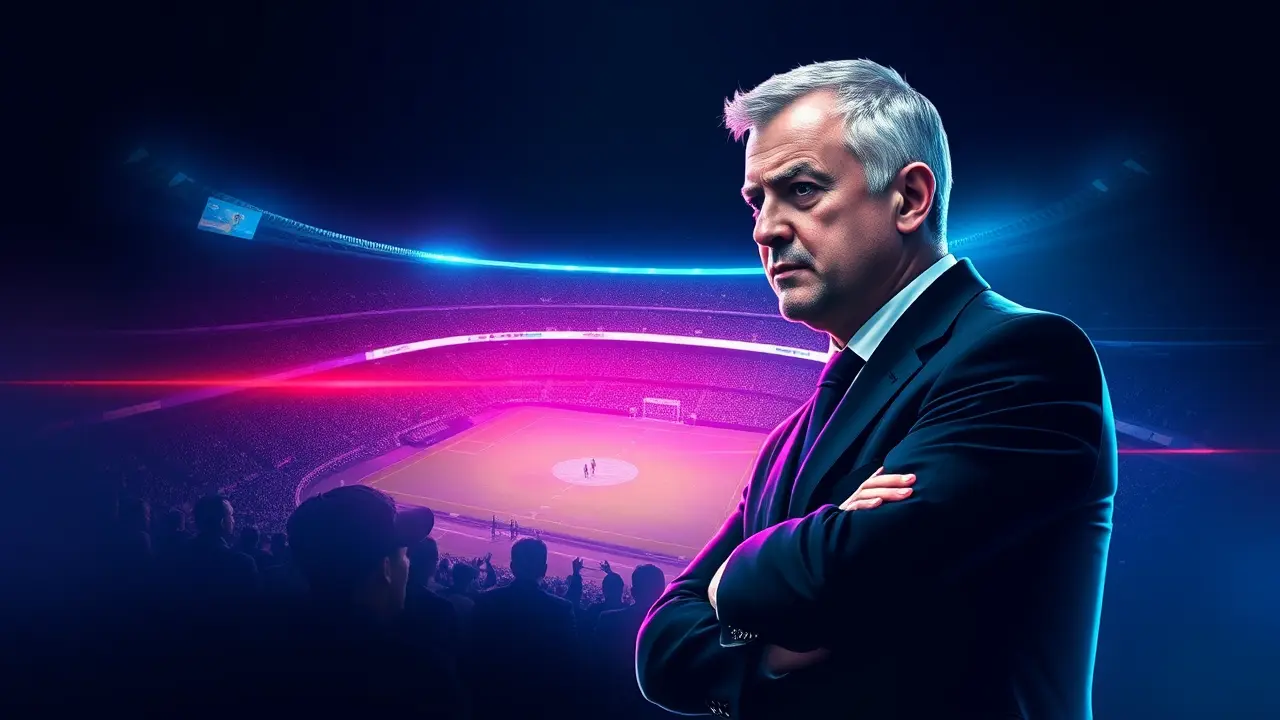Benfica won one of last four matches, Mourinho's team crushed by Newcastle.
The narrative unfolding at Benfica under the stewardship of José Mourinho is beginning to resemble a tense, tactical drama where the final act remains frustratingly unwritten, a stark contrast to the typically dominant storylines associated with the self-proclaimed 'Special One'. The recent 3-0 capitulation at the hands of a relentless Newcastle United in the Champions League group stage wasn't merely a defeat; it was a systematic dismantling, a performance that laid bare the vulnerabilities of a side still struggling to imprint its new manager's notoriously pragmatic and defensively robust identity.This humbling at St. James' Park, a stadium echoing with its own renaissance, serves as the alarming centerpiece of a concerning four-match sequence for the Lisbon giants, a run that has yielded just a single victory—a somewhat hollow 2-0 win against minnows Chaves—amidst a disconcerting draw with Porto and a narrow, yet telling, 1-0 loss to Chelsea.When you place these performances under the microscope of football analytics, the numbers paint a picture of a team in transition, but one where the transition is costing them crucial points and momentum. Mourinho, a manager whose past successes with clubs of the calibre of Real Madrid and Inter Milan were built upon a foundation of unbreachable defensive discipline and lethal counter-attacking efficiency, now finds his Benfica side looking porous and creatively stifled.Over his seven-match tenure thus far, the record reads three wins, two draws, and two losses—a points-per-game average that would be acceptable for a mid-table side but falls woefully short of the exigent standards demanded at the Estádio da Luz, a cauldron of expectation where winning is not just desired, it is a non-negotiable prerequisite. The draw against Porto in the clássico, while showcasing defensive resilience, also highlighted a concerning lack of a cutting edge in the final third, a problem that was exacerbated in the defeat to Chelsea and then catastrophically exposed by Newcastle's high-press and clinical finishing.It’s impossible not to draw parallels to some of the legendary, yet fading, stars of the game; much like a veteran playmaker who can still deliver a moment of magic but can no longer dictate the tempo for a full ninety minutes, Mourinho’s tactical system seems to be showing its age, struggling to adapt to the hyper-intensive, physically demanding style of the modern European elite. The upcoming fixture against Arouca on October 25th is no longer a simple domestic formality; it has morphed into a critical litmus test, a match where anything less than a convincing, multi-goal victory will inevitably intensify the murmurs of discontent and raise profound questions about the long-term viability of this high-profile union.The broader context here is the immense pressure of managing a club where the ghost of Eusébio still walks the halls, and the passionate fanbase views European glory not as a dream, but as a historical right. Mourinho’s appointment was meant to be a triumphant homecoming, a fusion of Portugal’s most successful manager with its most storied club, but the early returns suggest a fraught marriage between a pragmatic, old-school footballing philosophy and a squad perhaps better suited to a more expansive, possession-based game.The consequences of failing to quickly reverse this trend are severe; an early exit from the Champions League would represent a significant financial and reputational blow, while losing further ground in the Primeira Liga title race to rivals like Sporting CP or Porto could make his position untenable before the season even reaches its halfway point. Expert commentary from former players and pundits in Portugal is already beginning to shift from cautious optimism to pointed criticism, focusing on the team's lack of a coherent press, the disjointed link between midfield and attack, and whether Mourinho’s methods, so effective a decade ago, can truly be revived in a new footballing era. In essence, the story of Mourinho’s Benfica is a compelling lesson in the immense difficulty of recapturing past glories, a stark reminder that a manager’s reputation is only as good as his team’s last performance, and for a club of this stature, the patience for a project is always perilously short.
TA
TacticalNerd3 hours ago
the underlying numbers must be pretty rough rn, idk if mourinho's system can keep up with the modern press
0
EA
EagleSince995 hours ago
man this is tough to watch, been here since day one but the vibes are just off rn
0
MI
midnight thinker8 hours ago
can't sleep and reading this at 3 am... mourinho's tactics feel like they're from a different era smh, it's kinda sad to watch tbh
0
© 2025 Outpoll Service LTD. All rights reserved.
